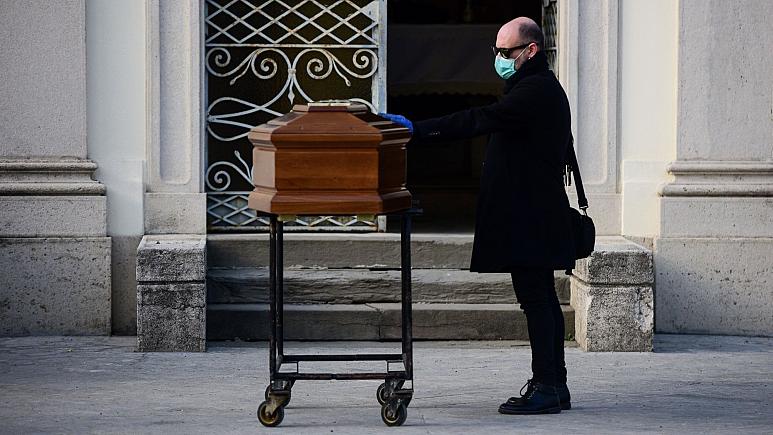They’ve been working non-stop for almost a month, without gloves and masks. None of them have been tested, although they have met dozens of family members and friends of the people who died because of COVID-19. Owners and employees of funeral homes in the province of Bergamo in northern Italy are exhausted and they are threatening to stop working unless appropriate measures are taken to protect public safety.
There are about 80 companies operating in the province. One of the largest employs about forty people. Before coronavirus broke out here, it dealt with an average of about 115 funerals per month, but so far this March there are already more than 800.
Images of army trucks transporting the coffins of COVID-19 victims out of Bergamo have become symbolic of the drama the city is experiencing. The crematorium has been working 24 hours a day for weeks, but is unable to meet the demands. At the moment the waiting list for cremation is three weeks long.

The Bergamo area is one of the areas with the highest number of cases in Italy, almost 6,500 according to Civil Protection Agency data. Antonio Ricciardi, president of the funeral category of LIA, an association of small and medium enterprises in the Bergamo area, spoke of an unsustainable situation.
“It is absolutely irresponsible to continue to operate in the current conditions,” said Ricciardi. “Entering and leaving health facilities and people’s homes without any health control.”
Experts are arguing authorities underestimated the risk of COVID-19, especially during the early stages of contagion.
Pietro Bonaldi, director of LIA, told Euronews: “In the early days it was still allowed to transport the open coffin. The coffin was transported to the homes of relatives and churches to allow relatives and friends to greet the deceased. In this way, however, many people gathered in a confined space, favouring the further spread of the virus. We made this issue known to the authorities.”
In addition to relatives and friends, therefore, employees of the funeral home may also have contributed to the exponential increase in the number of cases in the province.
Funeral services banned
As the contagion progressed, stricter rules for the management of the deceased were established. The bodies are not stripped and coated, they are simply wrapped in a sheet soaked in disinfectant solution. The transfer of open caskets has been prohibited and the coffins are sealed immediately.
Ceremonies have also been banned, in order to avoid mass gatherings. The funeral was reduced to simply transporting the sealed coffin to the cemetery or crematorium. The cremation of people who died as a result of COVID-19 is not compulsory.
For almost a month now, the employees of the funeral service have been entering the health facilities in the Bergamo area without any protection. The lack of masks, gloves and disinfectant solutions is well known – it’s talked about in Italian media, and a few days ago the Lombardy region launched a new appeal to companies able to produce them. Naturally, priority is given to health care workers but, as Bonaldi points out, even funeral parlour workers often find themselves sharing their own space when they are called to look after the deceased.
The issue of testing is more complex. None of the workers at the funeral home, Bonaldi confirmed to Euronews, has been submitted to it. According to the latest circular from the Ministry of Health, only people with symptoms of the virus should be swabbed. The regions however are not all following this guidance.
Veneto, for example, has chosen to carry out swabs: to date more than 61,000 have been swabbed, only 12,000 less than in Lombardy, which, however, has a number of cases six times higher (almost 29,000 compared to about 5,000 in Veneto). Lombardy, on the other hand, has shown itself to be more compliant with ministerial directives. The consequence is that hundreds of workers in the funeral service continue to do their work without any kind of control that protects their health and that of the community.


